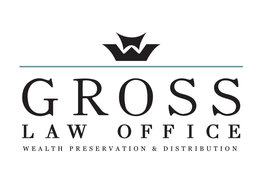Irrevocable Trusts
Irrevocable trusts are wonderful tools for reducing estate size. There are three players involved. The first is the grantor or settler who creates the trust (you). The second is the trustee who operates and administers the trust (someone you designate). The third is the beneficiary or group of beneficiaries who receive distributions from the trust (those you wish to receive trust assets upon your death). A trust agreement establishes the irrevocable trust, which is the instructions for the trust and can be drafted by an experienced estate plan attorney.
When it is time, the trust agreement can be executed in the manner that is specified by state law.
Utilizing Irrevocable Trust Benefits
There are several benefits to an irrevocable trust. The benefits are:
- Property management
- Avoiding probate
- Shifting the income tax burden to lower tax brackets so less tax is due
- Reducing estate tax liability
- Avoiding gift tax on assets that are likely to increase in value
Some things to keep in mind about an irrevocable trust is that it is truly irrevocable. It isn’t like a revocable trust that can be amended or revoked after it is created. It’s permanent, so the assets transferred to the trust cannot be given back to the grantor or removed. The trust owns the assets, so the grantor loses the ability to control the assets outside of what the trust agreement dictates. This also means that the trust pays its own taxes. For this reason, it has its own FEIN to file annual tax returns. While this can mean a higher tax rate on high-income trusts, it also means the trust can claim expenses, deductions, and the distributions to beneficiaries. The beneficiaries then pay tax on what they receive, and the tax paid by the trust is reduced. Beneficiaries in lower tax brackets wouldn’t have to pay as much tax as those in higher tax brackets as long as the proper planning takes place beforehand.
Solid Estate Planning
You must also consider that an irrevocable trust doesn’t eliminate the need for a will or other estate planning documents. It is ideal to still have a health care directive or power of attorney in place in the instance you become incapacitated.
Mr. Gross will help you weigh the pros and cons, as well as the other options available to you so that you can make informed decisions about your assets, future, and the future of your beneficiaries.
Contact A Minneapolis Irrevocable Trusts Lawyer
If you need to establish an irrevocable trust as part of your estate plan, it’s important to talk to an experienced estate planning attorney who focuses on wealth preservation and distribution matters. To learn more about how Gross Law Office can help you, call 612-245-4749 today.
